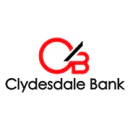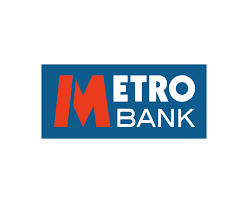Understanding Self-Employed Mortgages in the UK
Securing a mortgage as a self-employed individual in the UK can be more challenging than for salaried employees. Lenders often perceive self-employed applicants as higher risk due to income fluctuations and the absence of employer-backed payslips. While no specific mortgage products are exclusively designed for the self-employed, lenders impose additional documentation requirements to verify income stability.
Many UK lenders require at least two years of self-employment history, though some may approve applications with just one year’s accounts, particularly if the borrower demonstrates strong financial health. The key to mortgage approval is proving consistent earnings, financial stability, and creditworthiness.
How Do Lenders Assess Self-Employed Mortgage Applicants?
Mortgage lenders assess self-employed applicants differently from salaried borrowers. Instead of payslips, they rely on tax returns, business accounts, and bank statements to determine affordability.
Most lenders calculate the applicant’s average annual income over the past two to three years, although some may consider the latest year’s earnings if there is a clear upward trend. The higher and more stable the income, the better the mortgage rates and borrowing capacity.
Minimum Self-Employment Period for a Mortgage
Why Do Most Lenders Require Two Years of Accounts?
A common requirement for self-employed mortgages is providing at least two years of tax returns (SA302s) and business accounts. This period allows lenders to assess whether the applicant has a reliable income stream. A steady or growing income reassures lenders that the borrower can afford monthly repayments.
Lenders consider various income sources for self-employed applicants, including:
- Sole trader profits (after tax)
- Dividends and salary for limited company directors
- Contractor day rates annualised (e.g., daily rate x working days per year)
- Freelance and business income
Can You Get a Mortgage with Only One Year of Self-Employment?
Although most lenders require two or more years of self-employment records, some specialist lenders consider applications with only one year of accounts. However, approval may depend on:
- Previous employment in the same field before becoming self-employed
- A higher deposit (usually 15-20%) to reduce lender risk
- A strong credit history with no major defaults or missed payments
- Projected business growth supported by contracts or financial forecasts
If you have less than two years of accounts, working with a specialist self-employed mortgage broker can help identify lenders willing to accommodate your situation.
Types of Self-Employed Applicants and Their Mortgage Considerations
Sole Traders and Mortgage Eligibility
Sole traders operate as individuals and file income through self-assessment tax returns. Lenders use SA302 tax calculations from HMRC to assess average annual profits over two or more years. A consistent or growing profit makes approval easier.
Limited Company Directors and Mortgage Affordability
For limited company directors, mortgage affordability is based on salary and dividends rather than total company revenue. Some lenders may consider retained profits, particularly if the director keeps income low for tax efficiency. Choosing a lender that includes retained earnings can increase borrowing capacity.
Contractors and Freelancers Applying for Mortgages
Freelancers and contractors often work on short-term projects, making income assessment complex. Some lenders calculate affordability based on an annualised contract rate rather than taxable income. For example, a contractor earning £400 per day on a six-month contract may be assessed as earning:
£400 x 5 days x 46 weeks = £92,000 annual income
This approach benefits contractors with high day rates but lower taxable income due to business deductions.
Documents Required for a Self-Employed Mortgage in the UK
Lenders require comprehensive financial records to verify income and affordability. Common documents include:
SA302 Tax Calculations and Tax Year Overviews
These show official tax returns and declared income for the past two to three years. Lenders use these to assess income stability and affordability.
Full Business Accounts
Prepared by a chartered accountant, business accounts provide insights into profits, losses, and overall financial health. Some lenders prefer accounts from chartered or certified accountants for credibility.
Bank Statements
Personal and business bank statements (usually for the past six months) show income consistency and spending patterns. Lenders use these to identify financial stability and verify declared earnings.
Proof of Ongoing Contracts or Future Work
For contractors and freelancers, ongoing contracts can strengthen mortgage applications by demonstrating future income security. A signed contract with a stable client may help secure better mortgage terms.
Deposit Proof
Lenders require self-employed applicants to provide proof of deposit funds, usually 10-20% of the property’s value. A higher deposit improves approval chances and access to lower interest rates.
How to Improve Your Chances of Getting a Mortgage as a Self-Employed Applicant
Maintain Clear and Accurate Financial Records
Keeping well-organised financial records makes mortgage applications smoother. Lenders prefer applicants with consistent, verifiable income and professionally prepared accounts.
Boost Your Credit Score
A strong credit score enhances mortgage approval chances. Paying bills on time, reducing outstanding debts, and checking credit reports for errors can improve lender confidence.
Save for a Larger Deposit
A larger deposit (15-20%) lowers lender risk and increases the likelihood of mortgage approval. It also helps secure better interest rates.
Choose the Right Lender
Some lenders specialise in self-employed mortgages, offering flexible criteria and considering factors like contract-based income or retained profits. A mortgage broker can help find the best lenders for your situation.
How Mortgage-Tek Can Help You Secure a Self-Employed Mortgage
At Mortgage-Tek, we specialise in helping self-employed individuals, freelancers, and contractors secure mortgages tailored to their financial situations. Unlike mainstream lenders, we understand self-employed income structures and work with specialist lenders to offer flexible mortgage solutions.
Why Choose Mortgage-Tek?
- Access to specialist lenders who understand self-employed income
- Mortgage options for sole traders, limited company directors, and contractors
- Expert guidance on maximising borrowing capacity
- Support throughout the entire mortgage process, from application to approval
Whether you have one year or multiple years of self-employment, our team is here to help you navigate the mortgage market and secure the best possible deal.
Ready to buy your home? Contact Mortgage-Tek today and let’s get started!
Get in Touch For Our Expert Mortgage Advice
Looking for the right mortgage solution? Whether you’re securing a better rate, switching deals, or exploring let-to-buy options, our experts are here to help. Get in touch today for tailored mortgage advice and find the best deal for your needs—hassle-free and straightforward!
WHAT WE OFFER
Services we
can help you.
From first-time buying to remortgaging we serve for all. Whatever type of mortgage needs you have, we know how to make it work for you. Our access to comprehensive lenders ensures that we will provide you with the most adequate mortgage solutions
01
FIRST TIME
BUYERS
02
SELF EMPLOYED
MORTGAGES
03






















